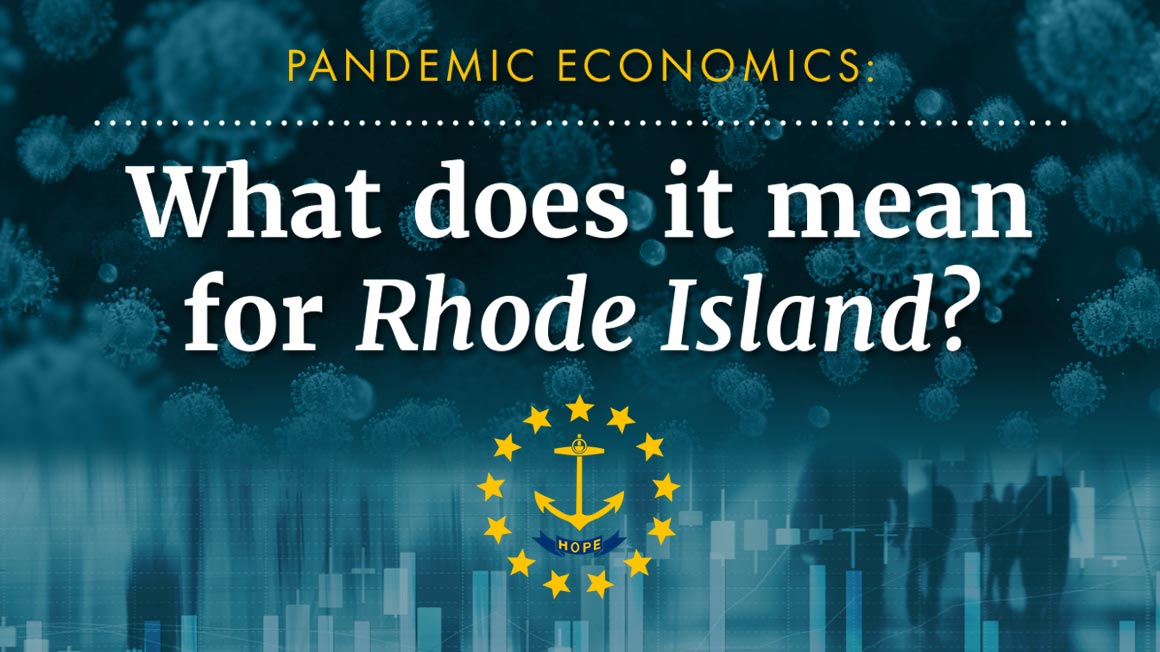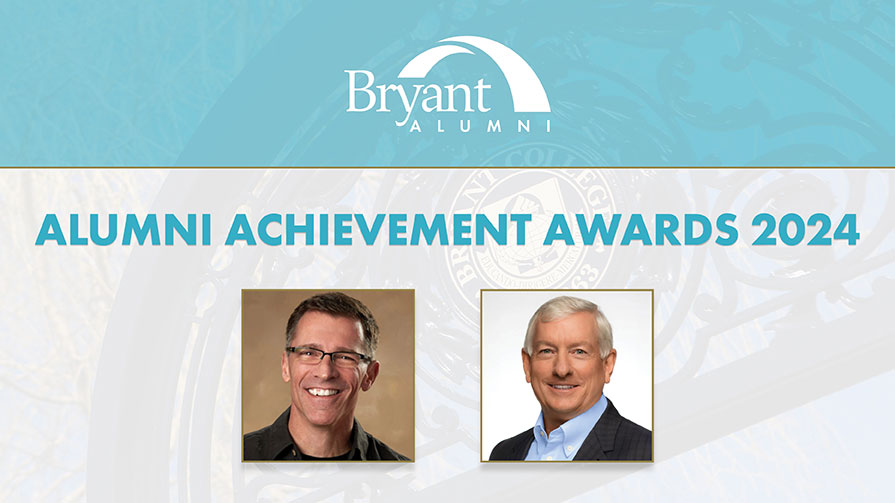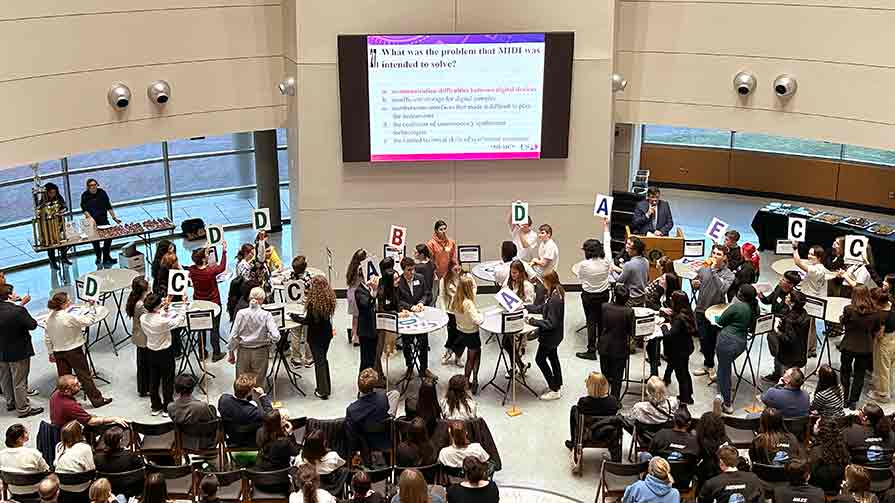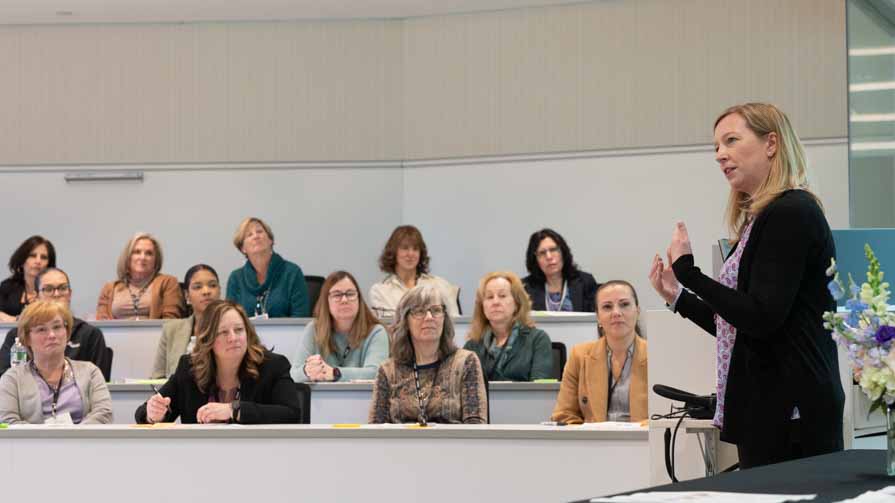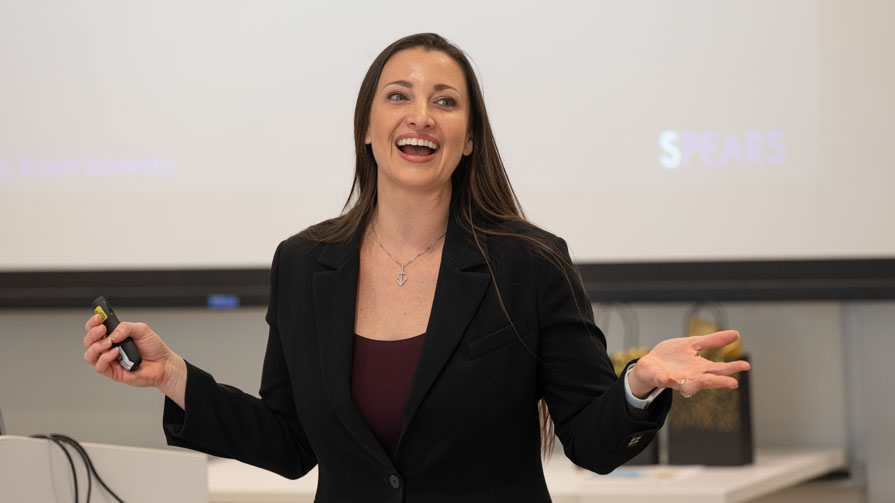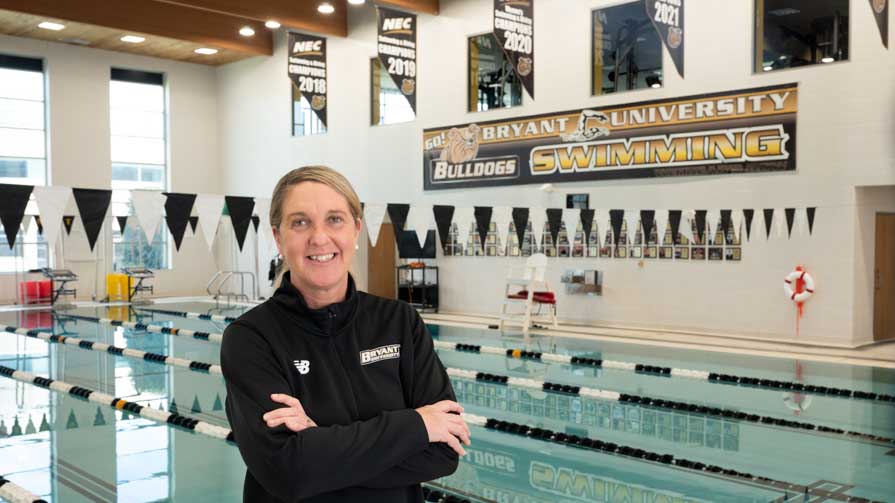SMITHFIELD, R.I. – Strategic leadership was the focus for the first in a series of three virtual moderated panels, “Pandemic Economics: What does it mean for Rhode Island?”, presented by Bryant University and the Rhode Island Foundation. Nearly 400 people tuned in to the online forum on May 11, as four of Rhode Island’s most distinguished leaders convened to provide valuable perspective and strategies for economic recovery and growth for Rhode Island.
Edward Fitzpatrick, Boston Globe reporter covering Rhode Island, moderated the discussion that featured Stefan Pryor, Rhode Island Secretary of Commerce; Ronald K. Machtley, President of Bryant University; Neil D. Steinberg, President and Chief Executive Officer at the Rhode Island Foundation; and Ross Gittell, Ph.D., Economist, Chancellor of Community College System of New Hampshire, and Bryant’s incoming President.
A full video recording of the "A Time for Strategic Leadership" panel is available here.
The consensus among all of the panelists is that the health and safety of all Rhode Islanders is the first priority as the state recovers from this crisis.
Moving forward, the state needs to make major investments to “ensure we are ahead of the curve on investing in the place that the world’s going to look for our consumer demand and economic activity.”
Secretary Pryor opened the discussion with an update on the state’s plans to re-open the economy and noted that moving forward, the state needs to make major investments to “ensure we are ahead of the curve on investing in the place that the world’s going to look for our consumer demand and economic activity.”
“We in Rhode Island are blessed with remarkable assets in the areas where the world is looking to advance,” said Pryor. “The two I would point to would be these: Bioscience and material science.”
He added that it will be critical to “double down” to tap into all of Rhode Island’s resources and innovate in these areas to develop vaccines and treatments to combat COVID-19 and potential future pandemics, and to develop new materials and technologies that will enable a successful recovery and growth. “We look forward to a world in which Rhode Island can lead on all of these fronts."
"This type of innovation is Rhode Island’s competitive advantage; it is the United States’ competitive advantage.”
“This type of innovation is Rhode Island’s competitive advantage; it is the United States’ competitive advantage,” said President Machtley, noting Bryant’s emphasis on innovation and design thinking in in all aspects of its curriculum. “It’s critical that we all work together.”
Machtley and Gittell both focused on the critical need for higher education to partner with other institutions, as well as with industry, government, nonprofits and community organizations to educate students and invest in innovation. This includes programs and delivery methods to prepare students to become the next generation of innovators.
“Investment in education has to be aligned with the needs of the future economy.”
“Investment in education has to be aligned with the needs of the future economy,” said Gittell. “How do you apply knowledge toward problem solving and innovating toward a stronger business, a stronger government, and a stronger society?”
In his presentation, Gittell said that Rhode Island should focus on industries in which the state has a competitive advantage including health care, technology, hospitality, and education. He emphasized that education and training are necessary to create resilience in the economy, and that "Rhode Island's most valuable resource is its people."
Machtley added that higher education needs to focus on building capabilities in AI, data science, and analytics to prepare graduates to meet the demands of the future.
In his article about the panel in the Boston Globe, Fitzpatrick said that “the state also faces the broader challenge of reshaping its economy in a way that not only creates a “new normal,” but also creates a more resilient economy that leaves fewer Rhode Islanders behind."
“We left too many people behind in the old normal. We need to embrace the diversity of our state. We need to provide more equitable opportunities. Otherwise, we run the risk of being back here in ten years.”
“We left too many people behind in the old normal," said Neil Steinberg, who thinks we can and should do better moving forward. "We need to embrace the diversity of our state. We need to provide more equitable opportunities.”
“If we do not make some changes and plan for the longer term, we run the risk of being back here again in 10 years watching artificial intelligence, watching new industries, wondering why we can't support the lifestyle we want here.”
The Rhode Island Foundation’s COVID-19 Response Fund, established with the United Way in mid-March, helps nonprofits assist Rhode Islanders who have been affected by the crisis with food, housing, health care, and other basic needs. For those interested in helping, gifts to the fund can be made at rifoundation.org/covid19response.
Bryant has also established a COVID-19 Fund to help bridge the financial gap for admitted and current students and families who are dealing with the negative impact of the coronavirus crisis. Please visit https://www.bryant.edu/giving-bryant to learn more about ways to help.
Next panels May 27 and June 8
The Pandemic Economics: What does it mean for Rhode Island?” series continues with a panel on Public Finances on May 27, and the final panel on Jobs and Sectoral Changes on June 8. Registration and program information are available here.
